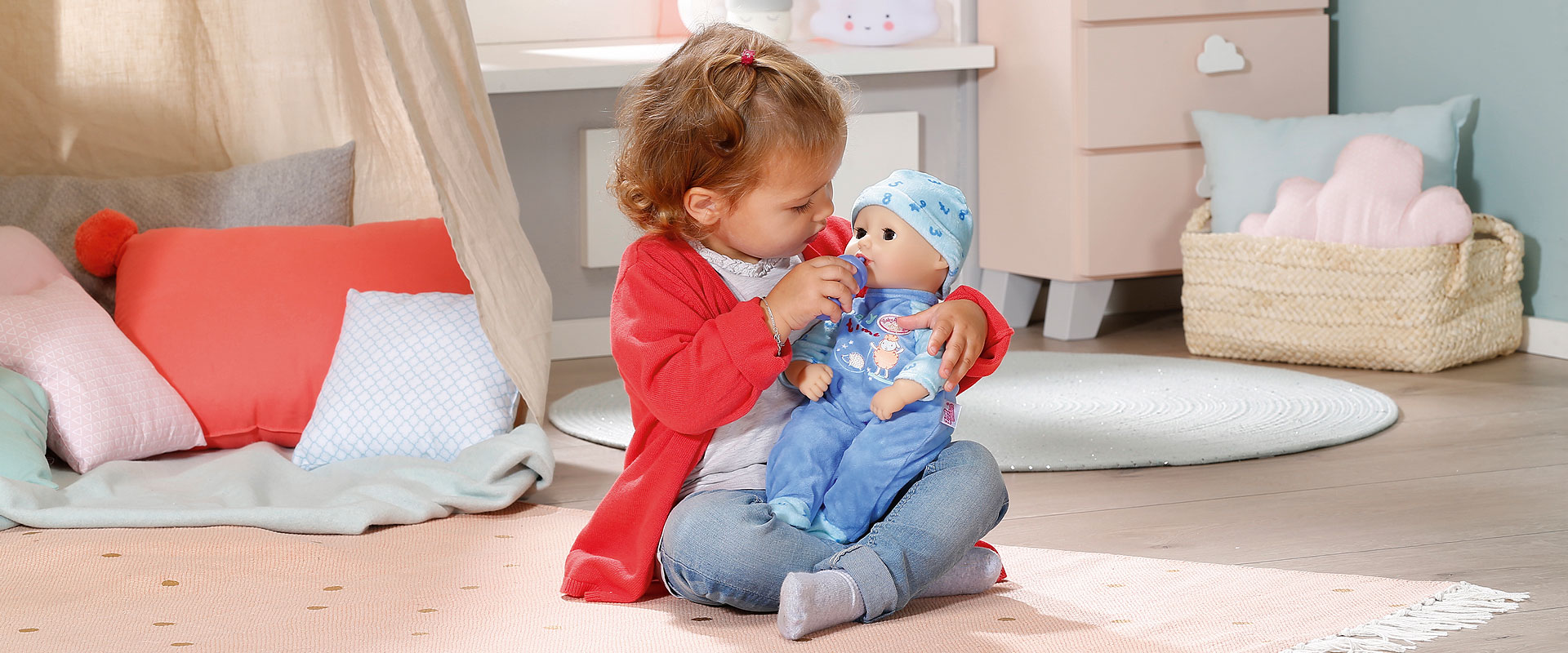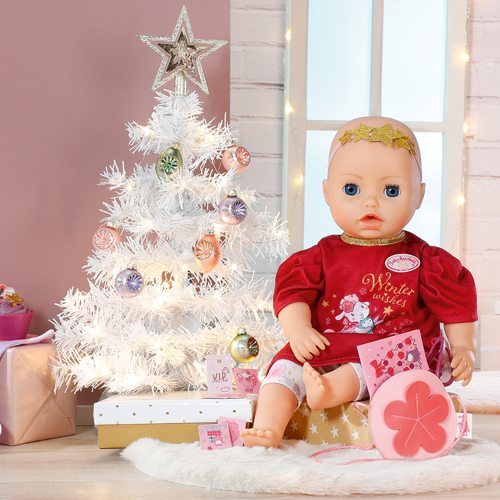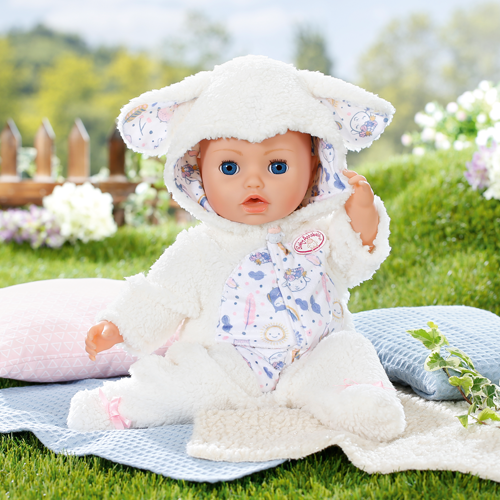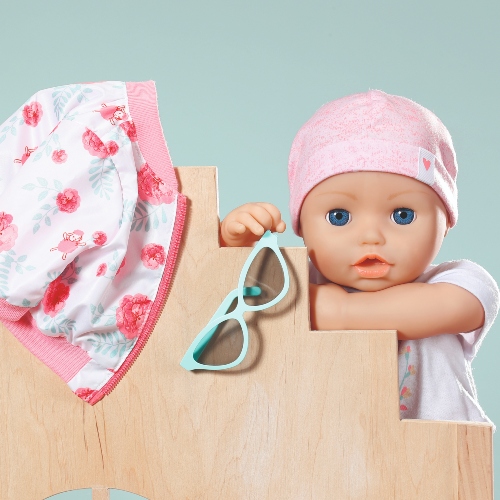From as young as 18 months old, little ones start getting to grips with their world – welcome to their wonderful developing imagination! At this age, all children really know is that adorable parent-child relationship they already have so much trust in. It’s their safe zone. That’s why dolls naturally feature so heavily in their early exploration into roleplay. Doll play offers an opportunity for them to act out the nurturing trait they’ve come to know so well.
Here, we take a look at why baby dolls for kids have always been so popular and how baby doll play helps develop some lovely qualities that can actually set little ones up for life.
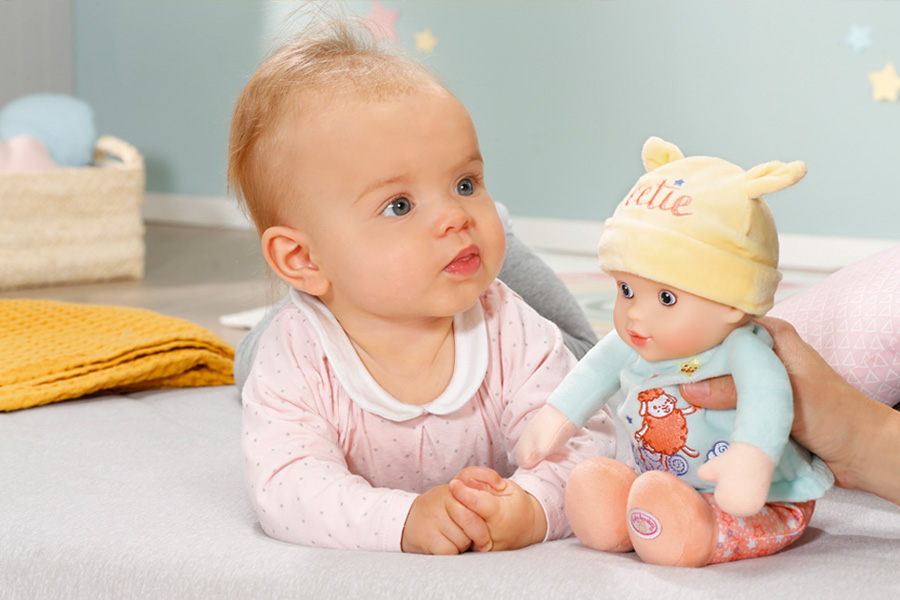
The importance of doll play
A doll is more than simply ‘a doll’ to learning little ones. It’s a friend, companion and someone to nurture. Baby doll play is an ideal opportunity for children to learn about human kindness, express their creativity and build their confidence in joining in social scenarios. Most of all, this type of play is key to their developing imagination – which, over the next few years, will know no limits! In fact, research has even shown that playing with dolls from an early age can set them up for a more successful career!
Let’s take a look at the main benefits of babies and toddlers playing with baby dolls:
Creativity and imagination.
Roleplay, or imaginative play, lets children act out what they know of the world – and test out new scenarios – in a safe environment. Through this type of play with their doll, they learn and practice the rules and routines of everyday life – ones that you’ve already instilled in them. This is their chance to act that out and it’s delightful to watch! They love putting their doll to bed, tucking her in, waking her up, giving her breakfast and later on, lunch…
Communication and language skills.
Because their doll becomes a best friend or someone to look after and protect, your little one shares ‘conversations’ with them in that context. This will strengthen their vocabulary and help them learn and demonstrate the skills needed to communicate well.
A sense of responsibility.
As little ones play with dolls, they’re learning responsibility as well – how to take ownership of something and make sure it’s cared for.
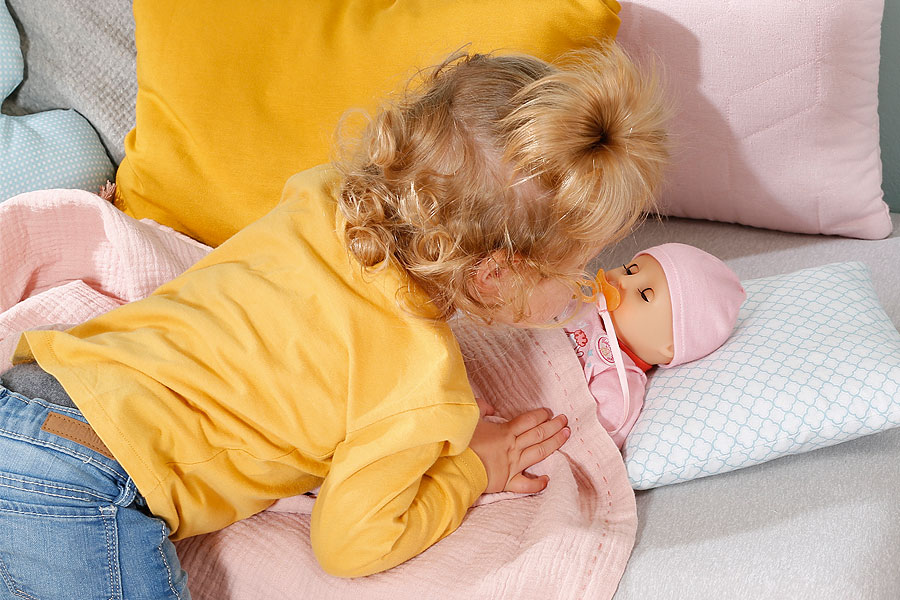
Social skills.
Through doll play, you’ll notice the difference in even the shyest of children! This type of play helps their listening skills, gets them comfortable with group play and helps them understand the importance of turn-taking and sharing.
Empathy and compassion.
Mini nurturers learn how to process emotions through their doll play. Listen carefully to what they’re saying during the play and you’ll probably hear them empathising in some way or another with their baby. Here, they’re laying the groundwork for growing up into a caring person.
How to facilitate fantastic doll play
Kids playing with dolls is one of the most natural things in the world! We don’t have to do a great deal to encourage younger children here – their lively imaginations will cover that! All they need is their doll and perhaps some accessories. Then step back and keep an eye on their play for a real insight into their imagination and what they’ve absorbed of the world surrounding them. Let your little one lead the doll play and try not to get too involved. It’s a great way to watch their imagination blossom – and a real insight into their emotions.
Want more inspiration for this wonderful play? Head over to Play Ideas or view the extensive Baby Annabell range now.
